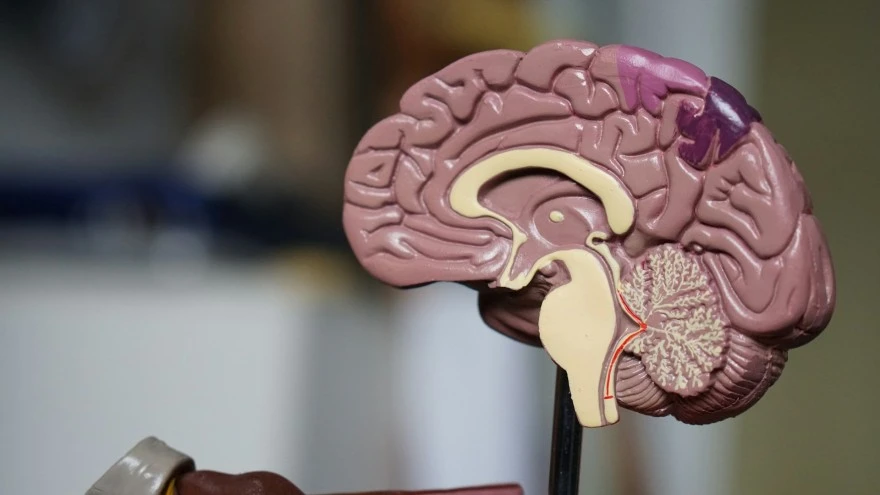Preventive Healthcare
Understanding Carpal Tunnel Syndrome: Symptoms, Causes, Treatment, and Diagnosis

Table of Contents
- What is Carpal Tunnel Syndrome?
- How common is Carpal Tunnel Syndrome?
- What are the Symptoms of Carpal Tunnel Syndrome?
- What causes Carpal Tunnel Syndrome?
- What are the risk factors of Carpal Tunnel Syndrome?
- What are the Complications of Carpal Tunnel Syndrome?
- How is Carpal Tunnel Syndrome diagnosed?
- How is Carpal Tunnel Syndrome treated?
- How Can I Prevent Carpal Tunnel Syndrome?
- Conclusion
What is Carpal Tunnel Syndrome?
Carpal Tunnel Syndrome (CTS) is a common condition that affects the hand and wrist. It occurs when the median nerve, which runs from the forearm into the palm, becomes compressed or squeezed at the wrist. The median nerve controls sensations to the thumb and fingers (except the little finger) and also sends signals to move the muscles around the base of the thumb.
Carpal Tunnel Syndrome symptoms include tingling, numbness, and pain in the fingers, hand, and sometimes the arm. These symptoms often worsen at night and can lead to weakness in the hand, making it difficult to grasp objects. Repetitive hand movements, wrist anatomy, and certain health conditions like diabetes and rheumatoid arthritis can increase the risk of developing Carpal Tunnel Syndrome.
Carpal Tunnel Syndrome treatment include wrist splinting and corticosteroid injections to relieve symptoms, as well as surgery in severe cases to relieve pressure on the median nerve. Early diagnosis and intervention can significantly improve outcomes and prevent long-term damage from Carpal Tunnel Syndrome.
How common is Carpal Tunnel Syndrome?
Carpal Tunnel Syndrome is one of the most common nerve problems in the hands. According to studies, Carpal Tunnel Syndrome affects one in 1,000 people every year in India alone. A significant proportion of office workers are likely to suffer from of carpal tunnel syndrome symptoms because they frequently work on computers. However, due to their relatively small size, carpal tunnel syndrome is more common in women than men.
What are the Symptoms of Carpal Tunnel Syndrome?
Carpal Tunnel Syndrome symptoms usually start gradually before worsening over time.
These symptoms include:
- Tingling and Numbness: You may experience these sensations, especially in your thumb, index, middle, or ring fingers. This feeling could extend from your wrist up along your arm as well.
- Weakness: You can feel weak in your hand and drop objects. This may be due to numbness or thumb-pinching muscle weakness, which is also controlled by the middle nerve.
If these symptoms persist and interfere with your everyday activities and sleep patterns, it's time to connect with a healthcare professional.
What causes Carpal Tunnel Syndrome?
Carpal tunnel syndrome usually develops slowly. At first, you may only experience minor symptoms that may get worse over time. It is usually due to pressure on the median nerve, which can be caused by several factors:
- Anatomical Factors: A dislocation or fracture can alter the space within the carpal tunnel, causing undue pressure on the median nerve.
- Inflammatory Conditions: Diseases like rheumatoid arthritis often lead to swelling and inflammation that could compress the median nerve within the carpal tunnel.
- Workplace Factors: Repeated hand motion or using vibrating tools can lead to Carpal Tunnel Syndrome. Working in a cold environment may compound these effects further.
Understanding these carpal tunnel syndrome causes is a crucial step toward managing this condition.
What are the risk factors of Carpal Tunnel Syndrome?
Although we have discussed some common Carpal Tunnel Syndrome causes, it is also important to understand various risk factors associated with CTS. These elements may not directly cause Carpal Tunnel Syndrome, but they can increase your chances of developing it:
- Physiology: Women are more likely to suffer from Carpal Tunnel Syndrome due to their relatively smaller carpal tunnels.
- Chronic Illnesses: Conditions like diabetes increase the risk of nerve damage
- Obesity: Being overweight can also heighten your risk of developing Carpal Tunnel Syndrome
- Workplace Environment: Jobs requiring repetitive wrist movement or the use of vibrating tools could be potential risk factors
What are the Complications of Carpal Tunnel Syndrome?
Without timely intervention, Carpal Tunnel Syndrome can lead to:
- Permanent Muscle Damage: The constant pressure on the median nerve can lead to muscle wasting in your thumb, near your palm.
- Loss of Hand Function: Persistent numbness and loss of dexterity could make it difficult for you to perform fine movements like buttoning your clothes.
How is Carpal Tunnel Syndrome diagnosed?
For Carpal Tunnel Syndrome diagnosis, doctors might:
- Evaluate your hand and wrist for signs of weakness or tenderness
- Perform specific tests like the Tinel's and Phalen's tests which involve flexing the hand and tapping the median nerve to see if it induces any symptoms
- Suggest Electromyogram or Nerve Conduction velocity tests to measure electrical impulses in your muscles and nerves.
How is Carpal Tunnel Syndrome treated?
The Carpal Tunnel Syndrome treatment depends on the severity of the symptoms and the extent of nerve damage, which can range from simple wrist splinting, exercises, and medications to surgical interventions in severe cases. Early diagnosis and treatment can help control symptoms and prevent permanent damage.
How Can I Prevent Carpal Tunnel Syndrome?
While there's no guaranteed prevention methods for Carpal Tunnel Syndrome, here are some tips that may help:
- Take Frequent Breaks: If your job involves repetitive hand motion, take breaks and stretch your hands and wrists periodically.
- Maintain a Healthy Weight: Obesity is a risk factor for Carpal Tunnel Syndrome. So maintaining a healthy weight can be a preventive measure.
- Protect Your Hands: If you are using tools that vibrates or require force, wearing protective gloves can help reduce the stress on your hands.
Conclusion
Understanding Carpal Tunnel Syndrome is the first step towards taking control of this condition: recognizing its symptoms, knowing its causes, understanding its diagnosis and treatment options, and learning how to prevent it. However, it is also vital to remember that professional medical advice is irreplaceable. Therefore, whenever in doubt or pain, always consult a healthcare provider promptly.
Metropolis Healthcare offers comprehensive diagnostic services, including at-home sample collection, ensuring timely and accurate testing for conditions like Carpal Tunnel Syndrome. Their team of proficient technicians and advanced labs ensure a seamless diagnostic experience, right from sample collection to report delivery.
Remember, with the right knowledge, medical advice and care, managing Carpal Tunnel Syndrome is within your grasp. Make your health a priority with informed decisions.


























